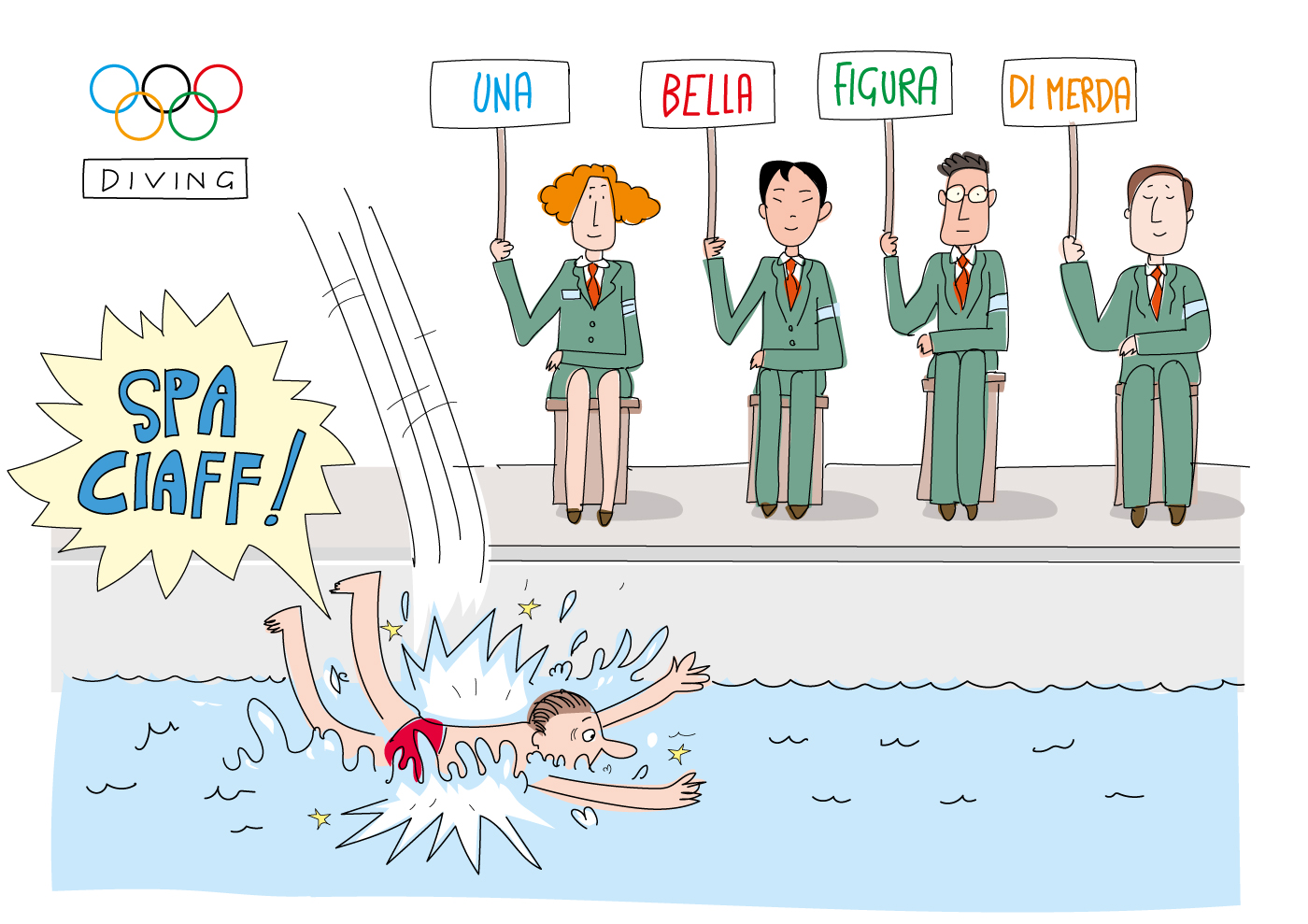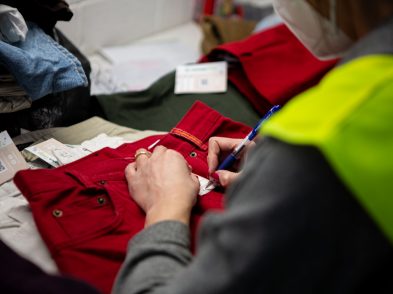Life in the bel Paese begins with appreciating la bella vita. You know you’re an advanced student of Italian integration, however, when you’ve grasped the concept of la bella figura. You see, figura figures prominently in Italian figures of speech; it just figures that it’s not at all an easy concept to translate.

How to use the word “figura” depends on context | Illux. Leo Cardini/The Florentine
On the matter of bella figura and its ugly cousins figuraccia, brutta figura and figura di merda, consider recent happenings in the world of sport. A certain Rio athlete lost his sponsorships for having made an Olympic figura di merda, though perhaps he doesn’t even realize the profundity of the situation because there are no words to fully describe his figuraccia in English. The ruder colloquial expression refers to the profound sense of cringe-worthy shame that one feels when thinking about what happened, in particular, when someone notices or calls you out on the matter.
Figura, either good or bad, is in the eye of the beholder. In boasting about the number of medals awarded, England “celebrates a successful Olympics” and America proudly “concludes record-breaking Olympic Games.” In Italy, the president of the Italian Olympics Committee, Giovanni Malagò, declares to the press: “Abbiamo fatto una bella figura.” Does success lie therefore in appearances rather than in facts?
Figurare means “to appear”; a clue perhaps to help us figure out the true meaning of this word. Unfortunately, like a good fashion model, the word is mutable with just a few letters here and there. Figurino is a positive—if not somewhat chauvinist—thing, meaning “looking good”, generally expressed with an appreciative glance at the body. Figurone has nothing to do with being fat, but basically is an extra-great bella figura.
So far so good, until you meet the word figurati, which leaves room for us to figure it out based on context. Generally an automatic response to thanks, similar to “you’re welcome” (though I prefer the very Florentine “ma che tu scherzi”), but when accompanied with an eye roll or the right sarcastic tone, it means “yeah right,” as in: “Have you received the schedule for this weekend yet?” —“Figurati, it’s only Friday.” Add an io after the word and you have “damned if I know”, as in “so then what are we doing Saturday”—“se non lo sai te, figurati io”. Which might be how you’ll respond next time someone asks you about the Italian use of the word figura and its derivatives: Go Figure.







